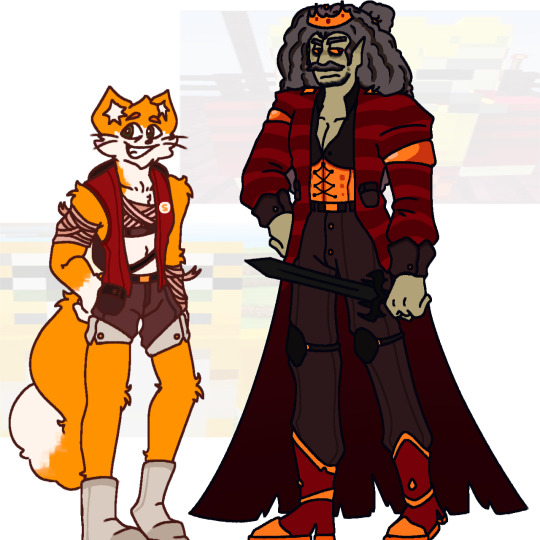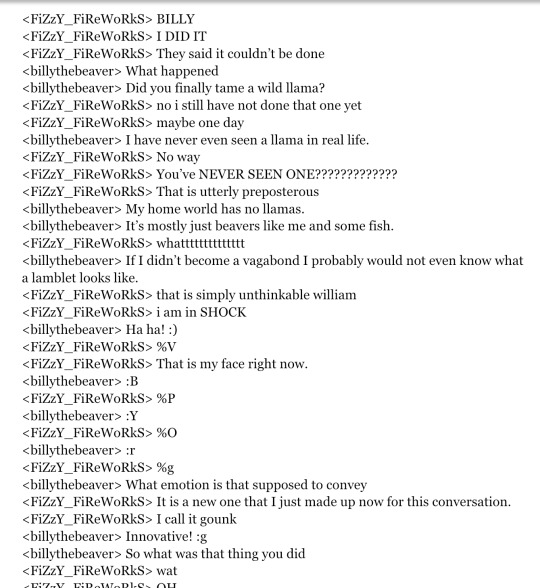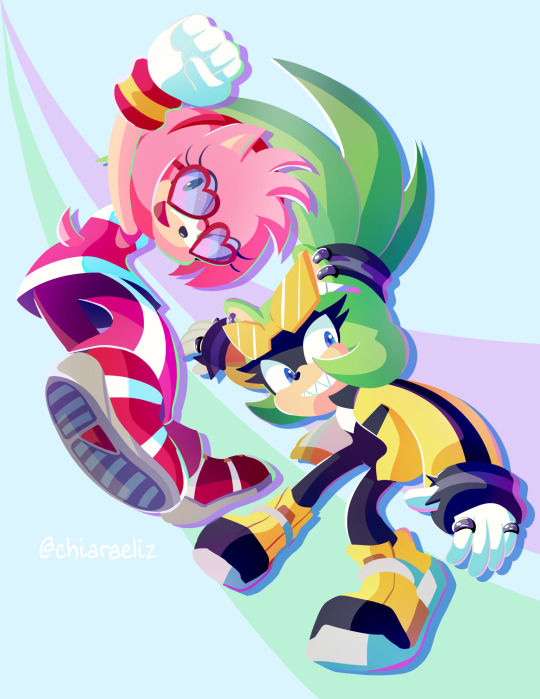Text

Idk what i've made

#not my art#HATSUNE MIKU?!?!?!#stampy cat#wizard keen#wonder quest#i wonder#stampy's lovely world#stampy#stampylonghead#stampylongnose#reblog
2 notes
·
View notes
Text
I like your version of HTT a lot. Imagining the buff-ness and height difference whilst reimagining HTT episodes makes me chuckle.
Stampy having bandages is a grade-A design choice too. I wonder if he got them from his battles or if he got them by tumbling down a hill (classic Stampy behaviour).
And oh my gosh you can see their faint stretched-out Minecraft skins behind the characters :0
WOWZERS!
Rant about stampy's crimes will be published later ♡ HEHEELP for now you get my redesigns because the hyperfixation went crazy

#not my art#stampy's lovely world#stampy cat#hit the target#htt#stampylongnose#stampylonghead#reblog
11 notes
·
View notes
Text
LET'S BE NEURODIVERSE TOGETHER

I could write a whole essay on how Stampy Cat (the character, not the irl person) from Stampy's lovely world is, while not as bad as htt, is still a neutrally bad person. But THEN it would be CRINGE and I'd DIE or something
19 notes
·
View notes
Text
Dear Tony/Erii,
If you don't embrace cringe and inject your awesome, interesting, amazing, insightful, wonderful and exciting Stampy Cat essay directly into my brain, I will fill each of your cushions, pillows, quilts, curtains and blankets in your entire living quarters with honey and strawberry jam.
Kind regards,
CyberGrapeUK
- Stampy's YT + Reddit mod
- Logo designer + animator for The Stampy Channel 24/7 livestreams
I could write a whole essay on how Stampy Cat (the character, not the irl person) from Stampy's lovely world is, while not as bad as htt, is still a neutrally bad person. But THEN it would be CRINGE and I'd DIE or something
#reblog#stampy#stampys lovely world#stampy cat#embrace cringe#kill the part of you that cringes#anti cringe culture
19 notes
·
View notes
Text
Things i learned as a child that probably no one intended to teach me
To grown-ups, being bad at stuff is a sin. Forgetting stuff is the worst sin of all, and also doesn’t exist - it is widely believed (and your behaviour will be interpreted thusly) that in some Freudian sense, it is impossible to forget things if you care about them or their consequences or the people who care about those things.
Your being happy and enjoying what you do doesn’t matter. All that matters is whether you are Fulfilling Your Potential.
Human beings do not require rest outside of sleep. Thinking that you do is called ‘being lazy’.
Who you show physical affection to is a matter of politeness and social protocol, and has nothing to do with your own desires
It is rude to inform people of your preferences, even if they seem to care about catering to them and therefore might find this useful information.
Etiquette centres around doing things in especially awkward, skilful and time-consuming ways in order to demonstrate superiority over people who aren’t able to keep up.
#all of this is mood#self ableism#ableism#actually autistic#neurodiversity#reblog#cyber's heart drive
37K notes
·
View notes
Text
Level 0:

Level 1: Being contemptuous of pro wrestling because it's "fake".
Level 2: Acknowledging the artifice, but still having fun with it.
Level 3: Acknowledging the artifice except for one specific bit, like you freely grant the outcomes of the matches are scripted but act like you think Undertaker really did come back from the dead all those times.
2K notes
·
View notes
Text
it should be illegal to put ads in apps or sites for solitaire or picross or sudoku tbh. playing classic puzzle games uninterrupted needs to be a HUMAN RIGHT
#you are all lifesavers#thank you#puzzles#app#no ads#anti ads#anti advertising#reblog#cyber's heart drive
51K notes
·
View notes
Text
I don't have long covid but GREAT SCOTT somebody finally put into words what I've realised about my autistic energy consumption this week!
Currently reading The Long Covid Self-Help Guide by the Post-Covid Assessment Clinic, Oxford, and while I still obvs can't say for sure that my general fatigue, sleep problems, post-exertional malaise, lightheadedness and dizziness, etc etc is related to getting COVID two whole years ago, I can say the chapter about managing fatigue has already rocked my world, especially in regards to low-level activity vs. real rest:
It's a good idea to think about the difference between rest and low-level activity. Many of us think we are resting when in fact we are engaging in low-level activity. Reading a book or magazine, watching TV, scrolling through our phone: these are low-level activities, and while they do not require a huge amount of energy (and are good to do in your day), they are still using up a little. Proper, restorative/healing rest helps to put some energy in your battery -- to charge it up. Rests are 'pauses' in activity. These might be in the form of relaxation exercises, breathing exercises, meditation techniques, mindfulness, restorative yoga practice or sensory techniques such as sound apps, a heated blanket, or aromatherapy. Find a way of truly resting that works for you.
Many people express feelings of guilt about stopping and resting or view it as a negative thing. This can act as a barrier to resting. If this sounds familiar, try to reframe your attitude to rest in a positive light. By resting you are not doing nothing, you are recharging your battery. You will be doing yourself (and those around you) a huge favor.
The book also notes that sleep and rest meet different needs and that getting good rest could lead to healthier sleep. Again: mind blown. I'm truly stoked I picked this book up for the first chapter alone.
11K notes
·
View notes
Text
These chat messages make me go :g
I love writing chat logs between Fizzy and William in my fic

6 notes
·
View notes
Text
Today my therapist introduced me to a concept surrounding disability that she called "hlep".
Which is when you - in this case, you are a disabled person - ask someone for help ("I can't drink almond milk so can you get me some whole milk?", or "Please call Donna and ask her to pick up the car for me."), and they say yes, and then they do something that is not what you ask for but is what they think you should have asked for ("I know you said you wanted whole, but I got you skim milk because it's better for you!", "I didn't want to ruin Donna's day by asking her that, so I spent your money on an expensive towing service!") And then if you get annoyed at them for ignoring what you actually asked for - and often it has already happened repeatedly - they get angry because they "were just helping you! You should be grateful!!"
And my therapist pointed out that this is not "help", it's "hlep".
Sure, it looks like help; it kind of sounds like help too; and if it was adjusted just a little bit, it could be help. But it's not help. It's hlep.
At its best, it is patronizing and makes a person feel unvalued and un-listened-to. Always, it helps reinforce the false idea that disabled people can't be trusted with our own care. And at its worst, it results in disabled people losing our freedom and control over our lives, and also being unable to actually access what we need to survive.
So please, when a disabled person asks you for help on something, don't be a hleper, be a helper! In other words: they know better than you what they need, and the best way you can honor the trust they've put in you is to believe that!
Also, I want to be very clear that the "getting angry at a disabled person's attempts to point out harmful behavior" part of this makes the whole thing WAY worse. Like it'd be one thing if my roommate bought me some passive-aggressive skim milk, but then they heard what I had to say, and they apologized and did better in the future - our relationship could bounce back from that. But it is very much another thing to have a crying shouting match with someone who is furious at you for saying something they did was ableist. Like, Christ, Jessica, remind me to never ask for your support ever again! You make me feel like if I asked you to call 911, you'd order a pizza because you know I'll feel better once I eat something!!
#cw ableism#tw ableism#ableism#disability#everything here is so informative!#cyber's heart drive#reblog
17K notes
·
View notes
Text
Wizard Keen & Stampy Cat family dynamic is so peak idc. Little baby kitten Stampy gets adopted by a great wizard after being left on his doorstep. And he gets this stellar homeschool education because Keen is in the society of wonderers, leading Stampy to becoming part of the society as well. Also Stampy being a nepo baby is hilarious, just consistently making front page headlines like he did in that one episode of I Wonder.
Heinous helping raise Flunky and Lackey is also neat to imagine. I say helping because Flunky and Lackey’s parents are revealed in an episode, but I still imagine Heinous is seen as some form of parental / authority figure. And I imagine that they see Stampy as their little cousin and they’re always trying to pull pranks on him.
little Flunky and Lackey being like “You think your dad’s cool because he’s famous? Our dad is famous too he’s the best physical comedian in Wonderberg”
#stampy cat#wizard keen#flunky and lackey#heinous#wonder quest#i wonder#100% true and accurate#reblog
7 notes
·
View notes
Text
(⚠️Minor Flashing Lights⚠️)
Random Stampy Fact:
Episode 23 of Wonder Quest references both the musical score and the 88mph scene from Back to the Future.
#random stampy fact#stampy#wizard keen#back to the future#wonder quest#stampy cat#stampylonghead#stampylongnose#fun facts#random facts#cw flashing#tw flashing#cw flashing lights#tw flashing lights
13 notes
·
View notes
Text
there's an idea that I generally agree with, but I think the common articulation of it is too imprecise and decontextualized and that imprecision can foster into harmful beliefs.
the idea is usually articulated as something like: "inaction is a form of action"(/"not making a choice is a choice"/"silence is violence"/"if you're not part of the solution you're part of the problem"/"silence is consent"/etc.) in the sense of ethical decisions.
for example, if you see someone drowning and there's a life preserver nearby that you can throw to them, deciding to not to throw them the life preserver is a choice, and it's an unethical and cruel one. I think most people agree that this is an accurate ethical assessment in this sort of situation.
a classic example might be the trolley problem where inaction kills a greater number of people than action to divert the track. taking action is not a prerequisite for unethical decisions. the decision to not do anything can be harmful.
on a social justice level, if you do not do what you can oppose oppression and instead accept the status quo, that perpetuates the status quo.
however, the articulation of this idea often feels different when you experience persistent and long-term fatigue (or other disabling conditions that inhibit action). there is a sense in how many people in popular discourse discuss this idea which simplifies and distorts it into "inaction (or the absence of action) is inherently cruel." If you are not doing something good, then ipso facto you are doing something bad.
this can really contribute to ableist treatment of disabled people (e.g. people telling someone they are being cruel or oppressive for not being able to do something specific) and to disabled people ourselves internalizing that we are inherently and always cruel and doing bad things by default by virtue of not being able to do every single thing that would be beneficial to do.
once, years ago, I made plans to kill myself because I couldn't do the dishes. It sounded bizarre saying it out loud to a therapist (because that's not the reason most people give I assume) but the thing was, my housemates believed completely that my inability to consistently do dishes was evidence that I was selfish, lazy, and cruel. My not doing something was cast as an unethical choice. And I had tried to compensate by just not eating things that would involve dishes (replacing my meals with just a spoonful of peanutbutter out of a jar so no pots/pans/trays/utensils/plates/etc would be dirtied save for one single spoon which is what I could handle cleaning on my own) and that still was not enough. It was still unethical for me to not do dishes. The only way to not do harm was to do something I was physically incapable of doing. Therefore, logically, the only possible conclusion was that by existing I was inherently and always enacting cruelty on anyone who had the misfortune of living with me, and that the only way to stop hurting people was to die.
the thing that I didn't understand, that people around me did not understand, that I think most people who repeat these statements about inaction do not understand, is this:
inaction is only ethically relevant when it is a choice you are making. The choice to do nothing is an ethical one. But not being able to do something is not an ethical act, it is straightforwardly just a disability or an incapability.
If you see someone drowning and you genuinely have no way to help save them, then you share no responsibility in their death. Probably responsibility goes to whoever made the call not to have life preservers near bodies of water where people swim. Local government and beach management might be at fault here for choosing to do nothing, but if you have no choice then that is not a fault that belongs with you. If you're in the trolley problem but you are handcuffed in a car completely separate from controls and have no ability to change the direction of the train, then it's not your fault what happens. Ethics requires choice. Inaction is not always a choice.
if a caregiver is overworked, the ethical responsibility is not with a disabled person for being alive and needing care, it's with capitalism and landlordism and organized abandonment and devaluation of feminized labor and everyone who makes decisions that perpetuates and maintains these structures. blaming disabled people for these issues is 1) straightforwardly ableist and 2) a complete resignation to the status quo to never challenge the people who are actually making decisions in this situation.
you are not doing harm to anyone by surviving and sleeping and breathing and eating and resting and drinking water and receiving care. if those things are interwoven with systems that cause harm, the ethical responsibility rests with the people whose decisions perpetuate that system, not with you.
inaction in and of itself is not unethical or cruel or violent. choosing inaction when you are capable of action can be, but you are not doing anything wrong by merely existing.
#cw suicide#tw suicide#ableism#disability#a very enlightening view of action and inaction i really needed today#reblog#cyber's heart drive
255 notes
·
View notes
Text
When I'm struggling the hardest, I often think back to Van Gogh. Not about how tortured he was as an artist or anything else, but instead about how we know his name.
Did you know that Van Gogh's career as an artist only lasted about ten years? It's true. Before then, he was on his way to become a pastor. A writer. Before then, an art dealer. In a way, he was only just getting started when he died. So one note of solace in this is the reassurance that he hadn't died as a completely obscure artist. Downside is, well. His career was just getting started. Who was going to remember him, when barely anyone had a chance to talk about him?
Put simply: Theo van Gogh, an art dealer but more importantly Vincent van Gogh's most ardent supporter, both financially and artistically. After his brother's death, Theo collected Vincent's works and laid the foundations for the Van Gogh Museum and Vincent's legacy as a whole. Literally wrote it in his will that his family was to take care of Vincent's work. After his death, his family carried on his efforts to immortalize his brother's art, and it's only because of this work that we know about Starry Night, Sunflowers, all the great works Van Gogh ever did.
The point is that oftentimes, our legacy as artists depends not on our own efforts or the efforts of the masses but instead on the efforts of one person who believes in what we do. We know about Vincent van Gogh because Theo van Gogh wanted his brother's art to be remembered. And sure, you could say it's lucky that Vincent van Gogh had a brother who not only understood the value of his art but had the means to preserve it, but I think the bigger point is it really only takes one person.
One more story, and I'll let you go. James Hampton spent his entire life working as a janitor by day and then, by night, building religious art in a storage unit out of tin foil and garbage. He never told his family or what few friends he had that he was doing this. Nobody knew until he died, and even then, it took his landlord looking for rent to find his work. That landlord could have easily taken the whole thing as trash, thrown it out, and cut his losses. But you really can't blame him for deciding maybe there's something worth saving here.
Which is to say, ultimately, it gives me hope to think that there's a point to doing what I'm doing. It gives me hope to aim for just one person. Because I like to think that if that one person thinks the world of what I do, then how can you say my art didn't mean anything, you know?
#collectivism#kindness#art preservation#james hampton#van gogh#historic preservation#media preservation#lonely#loneliness#i really needed this today#thank you op#reblog#cyber's heart drive
20 notes
·
View notes
Text
If I ate your art style, it would taste like strawberry and mint ice cream.

very very big fan of their riders outfits!! 💖💚
#not my art#CUUUUUUTE!#sonic idw#sonic the hedgehog#surge the tenrec#amy rose#surgamy#surgeamy#sonic riders#reblog
1K notes
·
View notes
Text
Remember that petitions are passed through based on the quantity of people signing one thing rather than the quality of what is said, so every signature helps!
PLEASE SIGN AS MANY PEITIONS AS YOU CAN AGAINST THE KOSA BILL
IT. MUSN'T. PASS
USE THE TAGS. GET THEM TRENDING. SPREAD THESE LINKS AROUND.
#important#psa#kosa bill#stop kosa#us politics#censorship#data privacy#lgbtq rights#lgbt rights#lgbtqia rights#queer rights#activism#petition
15K notes
·
View notes
Text
No offense but the internet gives you the most wrong and fucked up idea of helping people because people get mad if you don't care about disasters happening in 72 countries, meanwhile the people in real life that are doing the most good picked one VERY SPECIFIC thing to care about and care about it REALLY HARD
163K notes
·
View notes